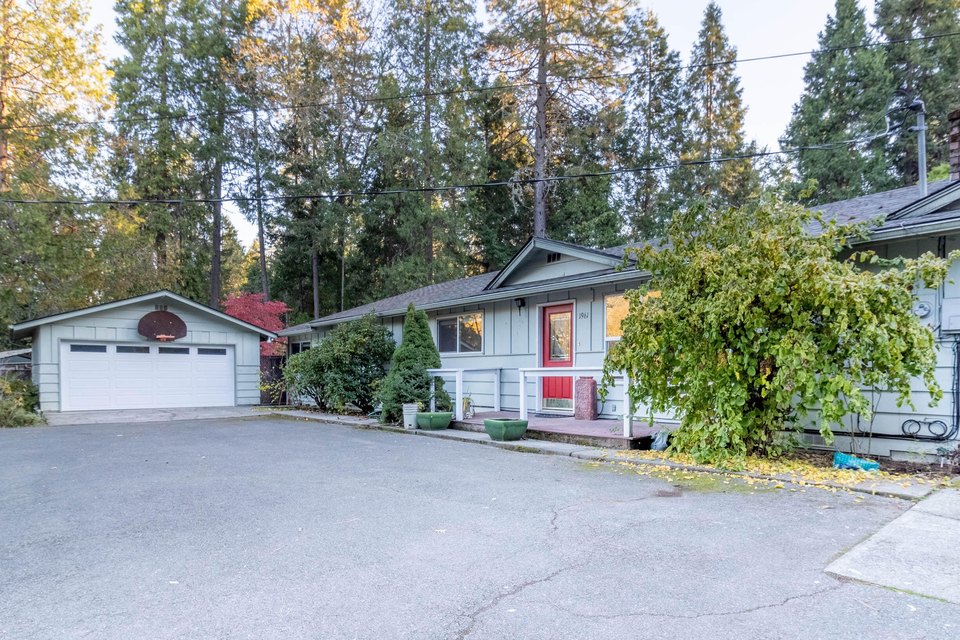
An agent in realty is someone who is licensed to assist people with buying or selling property. Agents usually work under the supervision of a broker who manages them.
The job of a real estate agent is to find homes for sale or rent, negotiate the terms of those deals, and make sure that everything runs smoothly throughout the process. There are many different types of agents in real estate. Each type has their own responsibilities.
Buyer's Agent - A buyer agent is an expert on the market. They can provide valuable information to people looking to buy a house. They look at the listings, visit homes with their clients, and help them make offers.
They also take on the responsibility of assisting their client with the paperwork needed to close a deal and helping them with home inspections.

Flat-fee realtors - These agents offer an alternative to traditional realtors and charge their clients flat fees instead of a commission on the sale of the home.
Having a good understanding of the local real estate market is vital for a successful agent, and this includes researching current home sales, determining a fair price, and finding comparable properties to list in the MLS.
Agent success depends on having a solid database of leads. Effective marketing can help you do this. This involves creating a strong brand, showing your expertise and knowledge, and building relationships with potential buyers.
If you enjoy people working with others and are good at customer service, becoming an agent is a great career choice. It is important to have the ability to deal with stressful situations and stay calm.
The real estate industry has a lot of jargon and buzzwords that can get confusing for newcomers, but the two main jobs -- agent and broker -- aren't all that different. The major difference is that a broker earns a salary while an agent receives commission payments on each deal they complete.

A broker, a highly experienced professional, is responsible for managing a team or agents of realtors. Brokers are typically more educated and have higher licensing requirements than agents. They can also own their own brokerage firm.
They might have a better understanding of the market than agents and can help their agents set goals and achieve success. They can also reinvest profits in the brokerage's bottom line to help it grow.
Associate broker – An associate broker is a licensed real estate agent with the experience to make more than the average agent. However, they don't have the license required to be a principal or managerial level broker. They will usually start out working for a brokerage to gain experience. Once they have gained enough experience, they will open their own firm that can provide uncapped income.
FAQ
What are the top three factors in buying a home?
The three most important factors when buying any type of home are location, price, and size. Location refers to where you want to live. Price refers to what you're willing to pay for the property. Size refers how much space you require.
Can I get a second loan?
Yes, but it's advisable to consult a professional when deciding whether or not to obtain one. A second mortgage is usually used to consolidate existing debts and to finance home improvements.
Do I need to rent or buy a condo?
If you plan to stay in your condo for only a short period of time, renting might be a good option. Renting lets you save on maintenance fees as well as other monthly fees. The condo you buy gives you the right to use the unit. You are free to make use of the space as you wish.
Statistics
- Private mortgage insurance may be required for conventional loans when the borrower puts less than 20% down.4 FHA loans are mortgage loans issued by private lenders and backed by the federal government. (investopedia.com)
- Over the past year, mortgage rates have hovered between 3.9 and 4.5 percent—a less significant increase. (fortunebuilders.com)
- When it came to buying a home in 2015, experts predicted that mortgage rates would surpass five percent, yet interest rates remained below four percent. (fortunebuilders.com)
- Based on your credit scores and other financial details, your lender offers you a 3.5% interest rate on loan. (investopedia.com)
- 10 years ago, homeownership was nearly 70%. (fortunebuilders.com)
External Links
How To
How to manage a rental property
Renting your home can be a great way to make extra money, but there's a lot to think about before you start. These tips will help you manage your rental property and show you the things to consider before renting your home.
Here are the basics to help you start thinking about renting out a home.
-
What do I need to consider first? Before you decide if you want to rent out your house, take a look at your finances. If you have debts, such as credit card bills or mortgage payments, you may not be able to afford to pay someone else to live in your home while you're away. You should also check your budget - if you don't have enough money to cover your monthly expenses (rent, utilities, insurance, etc. It may not be worth it.
-
What is the cost of renting my house? There are many factors that influence the price you might charge for renting out your home. These factors include the location, size and condition of your home, as well as season. It's important to remember that prices vary depending on where you live, so don't expect to get the same rate everywhere. Rightmove reports that the average monthly market price to rent a one-bedroom flat is around PS1,400. This means that you could earn about PS2,800 annually if you rent your entire home. While this isn't bad, if only you wanted to rent out a small portion of your house, you could make much more.
-
Is it worth the risk? It's always risky to try something new. But if it gives you extra income, why not? Before you sign anything, though, make sure you understand exactly what you're getting yourself into. It's not enough to be able to spend more time with your loved ones. You'll need to manage maintenance costs, repair and clean up the house. These are important issues to consider before you sign up.
-
Are there any advantages? You now know the costs of renting out your house and feel confident in its value. Now, think about the benefits. Renting your home is a great way to get out of the grind and enjoy some peace from your day. Whatever you choose, it's likely to be better than working every day. And if you plan ahead, you could even turn to rent into a full-time job.
-
How do I find tenants After you have made the decision to rent your property out, you need to market it properly. Online listing sites such as Rightmove, Zoopla, and Zoopla are good options. Once potential tenants contact you, you'll need to arrange an interview. This will help you evaluate their suitability as well as ensure that they are financially secure enough to live in your home.
-
What can I do to make sure my home is protected? If you fear that your home will be left empty, you need to ensure your home is protected against theft, damage, or fire. You will need insurance for your home. This can be done through your landlord directly or with an agent. Your landlord will often require you to add them to your policy as an additional insured. This means that they'll pay for damages to your property while you're not there. If you are not registered with UK insurers or if your landlord lives abroad, however, this does not apply. In these cases, you'll need an international insurer to register.
-
Even if your job is outside the home, you might feel you cannot afford to spend too much time looking for tenants. Your property should be advertised with professionalism. Post ads online and create a professional-looking site. Additionally, you'll need to fill out an application and provide references. Some prefer to do it all themselves. Others hire agents to help with the paperwork. It doesn't matter what you do, you will need to be ready for questions during interviews.
-
What do I do when I find my tenant. If there is a lease, you will need to inform the tenant about any changes such as moving dates. If this is not possible, you may negotiate the length of your stay, deposit, as well as other details. It's important to remember that while you may get paid once the tenancy is complete, you still need to pay for things like utilities, so don't forget to factor this into your budget.
-
How do I collect my rent? When it comes to collecting the rent, you will need to confirm that the tenant has made their payments. If not, you'll need to remind them of their obligations. Any outstanding rents can be deducted from future rents, before you send them a final bill. You can always call the police to help you locate your tenant if you have difficulty getting in touch with them. They won't normally evict someone unless there's been a breach of contract, but they can issue a warrant if necessary.
-
What are the best ways to avoid problems? While renting out your home can be lucrative, it's important to keep yourself safe. You should install smoke alarms and carbon Monoxide detectors. Security cameras are also a good idea. It is important to check that your neighbors allow you leave your property unlocked at nights and that you have sufficient insurance. Do not let strangers in your home, even though they may be moving in next to you.